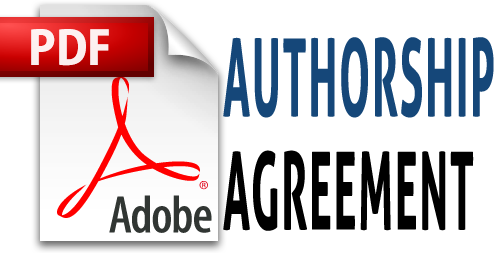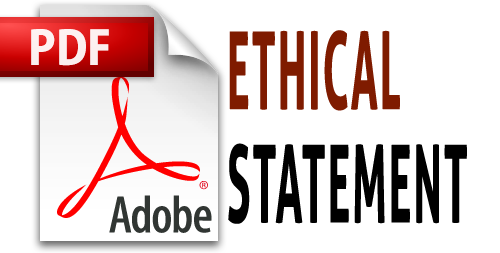ANALYZING THE DEVELOPMENT OF DIGITAL LITERACY FRAMEWORK IN EDUCATION: A SYSTEMATIC LITERATURE REVIEW
 Imas Istiani(1),
Eva Fatimah(2),
Ahmad Husain(3*),
Yuvita Yuvita(4),
Anin Eka Sulistyawati(5),
Sakina Sunmud(6)
Imas Istiani(1),
Eva Fatimah(2),
Ahmad Husain(3*),
Yuvita Yuvita(4),
Anin Eka Sulistyawati(5),
Sakina Sunmud(6)
(1) Universitas Negeri Semarang, Indonesia
(2) Universitas Wahid Hasyim, Indonesia
(3) Universitas Pancasakti Tegal, Indonesia
(4) Universitas Pancasakti Tegal, Indonesia
(5) Universitas Pancasakti Tegal, Indonesia
(6) Hatyai University, Thailand
(*) Corresponding Author
 Abstract viewed : 3622
|
Abstract viewed : 3622
|  PDF downloaded : 760
PDF downloaded : 760
Abstract
The development of technology massively increase during covid-19. Then, a dozen beneficial invention in many sectors such as education race to be better forward. This research aims to suggest and map the domains of digital literacy in each previous research without any reduction of meaning and analyze the development of digital literacy in education. This research used a systematic literature review as a method to find the result, meaning that the researcher has a procedure to collect the previous research. The procedure is for the researcher to collect 200 papers from Scopus Database, Search by “Digital Literacy” and filter by the keyword "framework" and ”Education”. Then, it is reduced into only for digital literacy framework proposal. The result shows that communication, information, content creation, safety, and critical digital literacy still become a suitable domain around the framework. This research concluded that five domains above suggested to use in further research.
Abstrak
Perkembangan teknologi sangat pesat di masa covid-19. Kemudian, selusin penemuan bermanfaat di berbagai sektor seperti pendidikan berlomba menjadi lebih baik ke depan. Penelitian ini bertujuan untuk menyarankan dan memetakan domain literasi digital pada setiap penelitian sebelumnya tanpa adanya pengurangan makna dan menganalisis perkembangan literasi digital dalam pendidikan. Penelitian ini menggunakan sistematika literature review sebagai metode untuk menemukan hasil, artinya peneliti memiliki prosedur untuk mengumpulkan penelitian sebelumnya. Prosedurnya peneliti mengumpulkan 200 makalah dari Basis Data Scopus, Pencarian dengan “Melek Digital” dan menyaring dengan kata kunci “kerangka” dan “Pendidikan”. Kemudian direduksi menjadi proposal kerangka literasi digital saja. Hasilnya menunjukkan bahwa komunikasi, informasi, pembuatan konten, keamanan, dan literasi digital kritis masih menjadi domain yang sesuai di sekitar framework. Penelitian ini menyimpulkan bahwa kelima domain di atas disarankan untuk digunakan dalam penelitian selanjutnya.
Keywords
References
Adarkwah, M. A. (2021) ‘“I’m not against online teaching, but what about us?”: ICT in Ghana post Covid-19’, Education and Information Technologies, 26(2), pp. 1665–1685. doi: 10.1007/S10639-020-10331-Z.
Atmazaki and Indriyani, V. (2019) ‘Digital Literacy Competencies for Teacher Education Students’, 335(ICESSHum), pp. 1010–1018. doi: 10.2991/icesshum-19.2019.156.
Bravo, M. C. M., Chalezquer, C. S. and Serrano-Puche, J. (2021) ‘Meta-framework of digital literacy: Comparative analysis of 21st century skills frameworks’, Revista Latina de Comunicacion Social, 2021(79), pp. 76–110. doi: 10.4185/RLCS-2021-1508.
Buckingham, D. (2015) ‘Defining digital literacy: What do young people need to know about digital media?’, Nordic Journal of Digital Literacy, 2015(4), pp. 21–34. doi: 10.18261/issn1891-943x-2015-jubileumsnummer-03.
Castro, A. (2022) ‘Proof of Concept Teaching for 21st Century Digital Literacy in Portugal: A Pedagogical Approach Towards a New Educational Model’, IFIP Advances in Information and Communication Technology, pp. 168–178. doi: 10.1007/978-3-030-97986-7_14.
Chetty, K. (2018) ‘Bridging the digital divide: Measuring digital literacy’, Economics, 12(1). doi: 10.5018/economics-ejournal.ja.2018-23.
Davydov, S. et al. (2019) Digital Literacy Concept and Measurement. 1st edn, Chart. 1st edn. Edited by S. Davydov. Moscow: Springer Netherlands. doi: https://doi.org/10.1007/978-3-030-33016-3.
Dwiningsih, K. et al. (2018) ‘PENGEMBANGAN MEDIA PEMBELAJARAN KIMIA MENGGUNAKAN MEDIA LABORATORIUM VIRTUAL BERDASARKAN PARADIGMA PEMBELAJARAN DI ERA GLOBAL’, Kwangsan: Jurnal Teknologi Pendidikan, 6(2), pp. 156–176. doi: 10.31800/JTP.KW.V6N2.P156--176.
Eshet-Alkalai, Y. (2004) ‘Digital Literacy: A Conceptual Framework for Survival Skills in the Digital era’, Journal of Educational Multimedia and Hypermedia, 13, pp. 93–106.
Feerrar, J (2019) ‘Development of a framework for digital literacy’, Reference Services Review. Available at: https://www.emerald.com/insight/content/doi/10.1108/RSR-01-2019-0002/full/html.
Feerrar, Julia (2019) ‘Development of a Framework for Digital Literacy’, Reference Services Review, pp. 1–17.
Ferrari, A., Punie, Y. and Bre, B. N. (2013) DIGCOMP : A Framework for Developing and Understanding Digital Competence in Europe . doi: 10.2788/52966.
Fricles Ariwisanto Sianturi (2016) ‘Aplikasi Pembelajaran Citra Dengan Menggunakan Metode Computer Assisted Instruction (CAI)’, Jurnal Riset Komputer (JURIKOM), 3(4), pp. 1–4. Available at: http://e-jurnal.pelitanusantara.ac.id/index.php/JIPN/article/view/292.
Gündüzalp, S. (2021) ‘21st Century Skills for Sustainable Education: Prediction Level of Teachers’ Information Literacy Skills on Their Digital Literacy Skills’, Discourse and Communication for Sustainable Education. Available at: https://search.proquest.com/openview/ecdeb5f47186229763205cc1869e2a09/1?pq-origsite=gscholar&cbl=2026372.
Hinrichsen, J. (2013) ‘The five resources of critical digital literacy: A framework for curriculum integration’, Research in Learning Technology, 21. doi: 10.3402/rlt.v21.21334.
Hinrichsen, J. and Coombs, A. (2017) ‘Research in Learning Technology The five resources of critical digital literacy : a framework for curriculum integration’, 7069(May), pp. 0–16. doi: 10.3402/rlt.v21.21334.
Hobbs, R. (2013) ‘Learning to engage: how positive attitudes about the news, media literacy, and video production contribute to adolescent civic engagement’, Educational Media International, 50(4), pp. 231–246. doi: 10.1080/09523987.2013.862364.
Indriastuti, F. and Saksono, W. T. (2018) ‘ADAPTASI TEKNOLOGI QR CODE AUDIO PADA TORSO BIOLOGI UNTUK SISWA TUNANETRA’, Kwangsan: Jurnal Teknologi Pendidikan, 6(2), pp. 137–155. doi: 10.31800/JTP.KW.V6N2.P137--155.
Johnston, N. (2020) ‘The Shift towards Digital Literacy in Australian University Libraries: Developing a Digital Literacy Framework’, Journal of the Australian Library and Information Association, 69(1), pp. 93–101. doi: 10.1080/24750158.2020.1712638.
List, A., Brante, E. W. and Klee, H. L. (2020) ‘A framework of pre-service teachers’ conceptions about digital literacy: Comparing the United States and Sweden’, Computers & Education. Available at: https://www.sciencedirect.com/science/article/pii/S0360131519303380.
Martínez-Bravo, M. C., Sádaba-Chalezquer, C. and Serrano-Puche, J. (2020) ‘Fifty years of digital literacy studies: A meta-research for interdisciplinary and conceptual convergence’, Profesional de la Informacion, 29(4), pp. 1–15. doi: 10.3145/epi.2020.jul.28.
Maulana, A. et al. (2019) ‘PENGEMBANGAN MEDIA VIDEO PRESENTASI PADA MATA KULIAH HIDROLOGI DI UNIVERSITAS NEGERI JAKARTA’, Kwangsan: Jurnal Teknologi Pendidikan, 7(2), p. 170. doi: 10.31800/JTP.KW.V7N2.P170--183.
Nabhan, S. (2021) ‘Pre-service teachers’ conceptions and competences on digital literacy in an EFL academic writing setting’, Indonesian Journal of Applied Linguistics, 11(1), pp. 187–199. doi: 10.17509/ijal.v11i1.34628.
Nada, E. I. and Sari, W. K. (2020) ‘Digital Literacy Analysis of Chemistry Education Students in Using the Chemdraw Application’, 5(3), pp. 293–299.
Ocaña-Fernández, Y. and Fernández, L. A. V (2020) ‘Digital skills and digital literacy: New trends in vocational training’, … Special Education …. Available at: https://www.int-jecse.net/abstract.php?id=161.
Putu Ade Resmayania, N. and Nyoman Tri Darma Putrab, I. (2020) ‘Gamification: Using Kahoot! to Make Students Love the Class from the Very Beginning’, Linguistics and ELT Journal, 7(1), pp. 10–18. doi: 10.31764/LELTJ.V7I1.1649.
Raes, A. (2020) ‘Learning and instruction in the hybrid virtual classroom: An investigation of students’ engagement and the effect of quizzes’, Computers and Education, 143. doi: 10.1016/j.compedu.2019.103682.
Sri Mulyani, E. W. (2018) ‘DAMPAK PEMANFAATAN APLIKASI ANDROID DALAM PEMBELAJARAN BANGUN RUANG’, Kwangsan: Jurnal Teknologi Pendidikan, 6(2), pp. 122–136. doi: 10.31800/JTP.KW.V6N2.P122--136.
Refbacks
- There are currently no refbacks.
Copyright (c) 2023 Imas Istiani, Eva Fatimah, Ahmad Husain, nFn Yuvita, Anin Eka Sulistyawati, Sakina Sunmud

This work is licensed under a Creative Commons Attribution-NonCommercial 4.0 International License.
Kwangsan Indexed By
Kwangsan: Jurnal Teknologi Pendidikan diterbitkan oleh Balai Besar Guru Penggerak (BBGP) Prov. Jawa Timur.
Kementerian Pendidikan dan Kebudayaan
Alamat Redaksi:
Jl. Mangkurejo, Ds. Kwangsan, Sedati - Sidoarjo.
Telp 0318911373 Fax. 0318911392
Email: jurnal.kwangsan@kemdikbud.go.id & jurnalkwangsan@dikbud.belajar.id






























